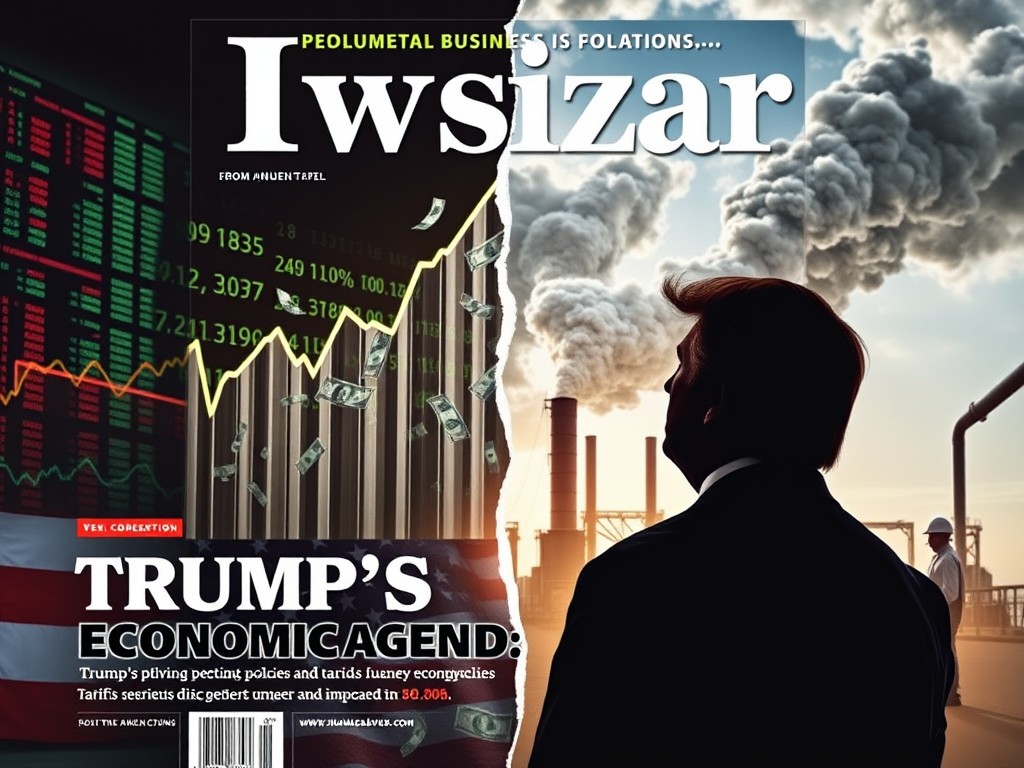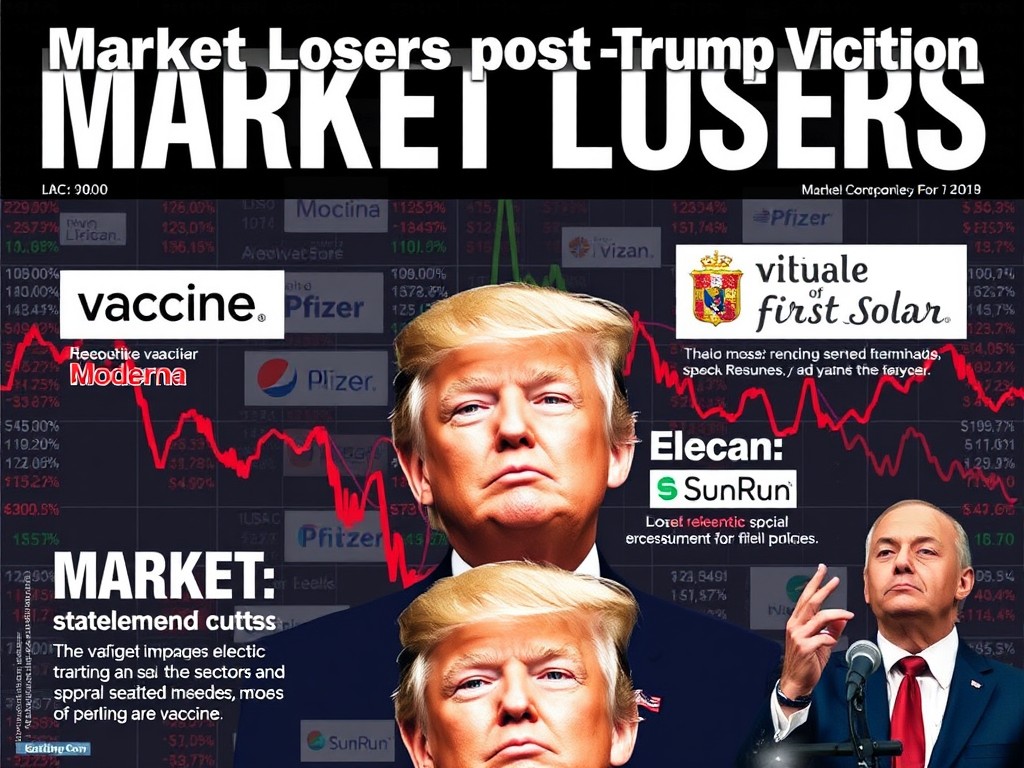Uncertainty is back on Wall Street after a post-election respite.
Stocks skyrocketed in the days after President-elect Donald Trump’s victory earlier this month, as money that had been sidelined by election uncertainty poured into the market. That euphoria has waned as investors have attempted more sober evaluations of the impact Trump’s proposals could have on specific industries and the broader economy; stocks rose this week, but only after slipping the week before.
Why The Uncertainty
Trump’s agenda is broadly considered good for business: He and the incoming Republican Congress say they want less regulation and lower taxes.
But Trump has also promised to deport millions of immigrants and implement sweeping tariffs, policies some economists say could help reignite inflation. His promise to extend—and possibly expand on—the tax cuts of his first term is expected to increase the federal deficit.
Together, tariffs, deportations, and tax cuts could lift Treasury yields, which were rising before Election Day and have continued to climb as Fed officials have said they’re in no rush to slash interest rates. Higher yields could generate headwinds for the stock market, diverting investment from equities and increasing financing costs for businesses.
Trump’s economic policies could boost the value of the dollar, pressing the multinational companies that are a fixture of most Americans’ investment portfolios. Widely-held tech companies like Apple (AAPL) and Microsoft (MSFT) generate substantial revenue overseas, where a stronger dollar eats into profit.
Some of those companies, as well as giants Alphabet (GOOG; GOOGL) and Meta Platforms (META), also have testy relationships with Trump, who has accused the tech industry of suppressing conservative views. His appointee to head the Federal Communications Commission has said “reining in Big Tech” should be one of the agency’s main goals.
Some Early Winners
Donald Trump’s promise to carry out mass deportations has pleased investors of the companies that operate detention centers. Shares of GEO Group (GEO) have nearly doubled since Election Day, while CoreCivic (CXW) has risen more than 60%.
GEO Group Executive Chair George Zoley said on the company’s earnings call two days after Trump’s re-election that the incoming administration was “a potential sea change” for the company. GEO Group, he said, is the “single largest contractor” to Immigration and Customs Enforcement, and is prepared to significantly increase its detention and supervision capacity.2
“The GEO Group was built for this unique moment in our country’s history and the opportunities that it will bring,” he added.
Stocks in the financial sector have risen as Wall Street has looked ahead to an administration seen as lighter on regulation.
Banks like Goldman Sachs (GS) and Morgan Stanley (MS) that specialize in facilitating corporate mergers and acquisitions have seen their stocks jump on the hopes that Trump’s anti-trust watchdogs will take a kinder view to dealmaking than their Biden-era predecessors. Those hopes have also boosted the stocks of companies in the middle of mergers, like Capital One Financial (COF) and Discover Financial (DFS).
Regulations also underpin the cryptocurrency rally that’s followed Trump’s victory. Bitcoin (BTCUSD) has soared more than 40% to nearly $100,000 this month. Trump on the campaign trail billed himself as the pro-crypto candidate, vowing to immediately fire crypto’s arch-nemesis Gary Gensler from his position as chair of the Securities and Exchange Commission. (Gensler on Thursday announced he would voluntarily step down.)
Shares of crypto exchange Coinbase (COIN) and bitcoin miner MARA Holdings (MARA) have followed crypto prices higher in recent weeks. Shares of MicroStrategy (MSTR), the company that has amassed the world’s largest bitcoin stash, have nearly doubled since Nov. 5.
Trump’s cabinet picks have figured into Wall Street’s bets, too. Shares of Henry Schein (HSIC), a supplier of medical equipment and services to doctors and dentists, have risen more than 10% since Trump tapped Robert F. Kennedy, Jr., to lead the Department of Health and Human Services. Kennedy has voiced support for removing fluoride from U.S. drinking water, which could increase demand for fluoride treatments at dental offices.
Some Losers So Far
Kennedy’s beliefs haven’t been as well received in other corners of the market. Shares of vaccine-makers like Moderna (MRNA) and Pfizer (PFE) have slumped on concerns his statements questioning their safety could impact FDA approvals and lead to lower vaccination rates. Companies with big government-contracting businesses have also seen their share prices fluctuate as Trump’s deputies have said they plan big cuts in spending.
Companies at the heart of the green-energy transition have taken a hit from Trump’s support for fossil fuels. The stocks of electric vehicle manufacturers like Rivian (RIVN) and Lucid (LCID), already pressured by sluggish EV demand and high interest rates, have traded sideways since Trump’s victory. Solar companies like SunRun (RUN) and First Solar (FSLR) have slumped.
Finally, a wild card of sorts: Shares of Trump Media & Technology Group (DJT), which fell below $12 apiece in September and then climbed above $50 shortly before the election, are now back around $30. Broad questions for the path ahead for the Truth Social parent company, as well as rumors about possible business lines or M&A, have swirled in recent weeks.
Investopedia





